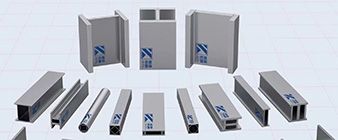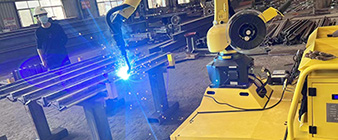Here is a summary of the performance and advantages of EN 1.4301 (AISI 304), EN 1.4307 (AISI 304L), and the differences between them:
Compared with 304L, the mechanical strength and hardness are higher;
Better resistance to wear and tear;
Suitable for applications requiring higher load capacity;
Good solderability, although slightly less than 304L;
Widely available and cost-effective.
Improved corrosion resistance, especially in welding areas;
Better weldability and high efficiency due to lower carbon content;
Suitable for applications in corrosive environments;
Good mechanical properties are retained despite welding;
Preferred components and structures for manufacturing.
Tensile strength: EN 1.4301(500-700 MPA)> EN 1.4307(450-650 MPA)
Yield strength: EN 1.4301(210-300 MPA)> EN 1.4307(170-250 MPA)
hardness: EN 1.4301(≤220hb)> EN 1.4307(≤200hb)
Corrosion resistance: EN 1.4307> EN 1.4301
In summary, EN 1.4301 (304) is preferred when higher mechanical strength and hardness are required, while EN 1.4307 (304L) is more suitable for applications with extensive welding or exposure to corrosive environments due to its improved endurance and corrosive. Selection depends on the specific requirements of the application.
Structure and Architecture:
Building frames, bridges, railings, facades and other load-bearing structures.
Preferred for its greater strength and durability.
Manufactured components and structures:
Welded components, tanks, pressure vessels and piping systems.
Weld resistance and corrosion resistance of preferred welding areas.
Chemical and petrochemical industry:
Equipment, vessels and pipelines used in corrosive environments.
Selected for its enhanced corrosion resistance.
Food, Beverage and Pharmaceutical Industries:
Processing equipment, storage tanks and other components.
Preferred for its superior corrosion resistance and cleanability.
Marine and Offshore Applications:
Shipbuilding, offshore platforms and other marine equipment.
Selected for its resistance to seawater and coastal environments.
-
 2024-9-15 Introduction to the performance of 1.4301/1.4307 stainless steel
2024-9-15 Introduction to the performance of 1.4301/1.4307 stainless steel -
 2024-9-25 SMO254 vs. 1.4547 Super Stainless Steel for Structural Applications
2024-9-25 SMO254 vs. 1.4547 Super Stainless Steel for Structural Applications -
 2024-9-25 1.4301 Stainless Steel Structural Profile Performance
2024-9-25 1.4301 Stainless Steel Structural Profile Performance -
 2023-12-12 Technical application of high-strength S690 steel profiles
2023-12-12 Technical application of high-strength S690 steel profiles -
 2024-9-27 318LN / 1.4462 Stainless Steel Hollow Structural Sections
2024-9-27 318LN / 1.4462 Stainless Steel Hollow Structural Sections -
 2024-9-25 1.4307 stainless steel hollow structural profiles
2024-9-25 1.4307 stainless steel hollow structural profiles -
 2024-9-14 304 vs 1.4301 stainless steel structure innovative applications
2024-9-14 304 vs 1.4301 stainless steel structure innovative applications



